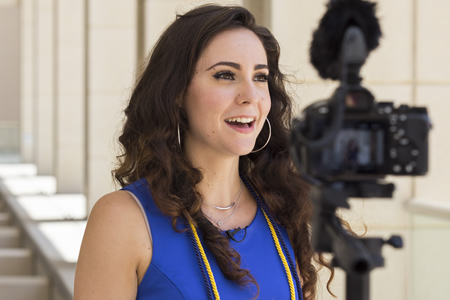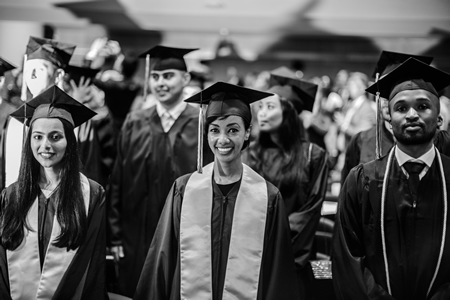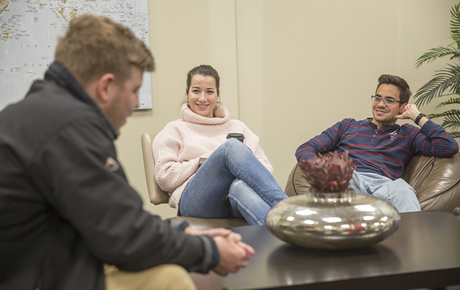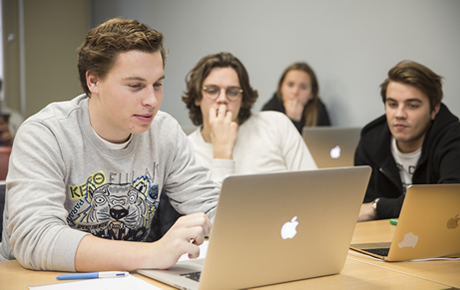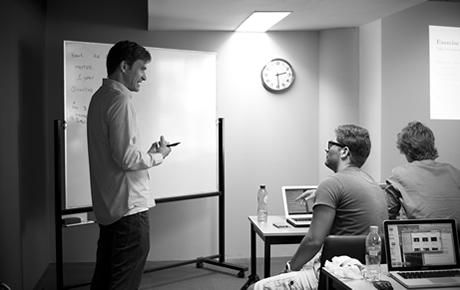Admission / Student Visa Guidelines
Student visas for Antwerp, Brussels, Geneva, Madrid, Milan and Zurich
Students without a national (EU, Iceland, Liechtenstein, Norway, Switzerland) passport or residence permit who wish to study in Belgium, Italy, Spain or Switzerland are required to apply for a student visa and can be enrolled for a full-time study program only. Undergraduate students are considered as full-time when attempting 15 or more credits per quarter. Graduate students are considered as full-time when attempting 8 or more courses per quarter.
Citizens, as well as their spouses, ascending and descending, from the European Union, Iceland, Liechtenstein, Norway, Switzerland, and future EU (European Union) and Schengen countries, are exempt from having to apply for a visa to stay in Belgium, Italy, the Netherlands, Spain or Switzerland.
Once you receive your acceptance letter, you are required to pay a deposit of the program fees. Typically, the amount of the deposit equals 1/3 of the annual full-time fee but may also consist of the total fee for the study program for students from certain countries. Upon receipt of the deposit, the admissions department will prepare the required certificates.
We advise you to start the student visa application procedure immediately after you have been accepted into the program to allow ample time for the Embassy or Consulate to process your student visa application, as it may take up to 3 months to receive your student visa. When applying for a student visa, please check with your local Belgian, Italian, Spanish or Swiss Embassy or Consulate for more information.
In case your student visa application is rejected by the authorities, the original rejection letter and the student’s full bank account details will be needed as proof before a program fee refund can be considered favorably (excluding all incurred administrative, legal and banking charges). Administrative charges amount to 5% or a maximum of EUR 200 / CHF 400. Refunds are processed within approximately 1 month.
Students are required to register with the local authorities upon their arrival in order to obtain a valid student residence permit. Registration details will be provided by the school upon arrival.
Required student visa application documents
- Schengen Visa application form
- 4 passport-size photographs with a white background
- Passport with a validity of at least 12 months
- Acceptance documents / Proof of admission (provided by the school)
- Sponsorship documents / Proof of financial means
- Medical certificate / Proof of good health
- Medical insurance with international coverage
Additional documentation and official translations in Dutch, French, German, Italian or Spanish may be required by the Embassy or Consulate.
- Find a Belgian Embassy or Consulate near you
- Find an Italian Embassy or Consulate near you
- Find a Spanish Embassy or Consulate near you
- Find a Swiss Embassy or Consulate near you
Student visas for Amsterdam, Barcelona and Tokyo
Students without a national (EU, EEA, CH or JP respectively) passport or residence permit who wish to study at these campuses n are responsible for obtaining their own visa or permit. The school cannot provide assistance to apply for a student visa. For more information about the various types of visas and permits available, please contact your nearest Dutch, Spanish or Japanese Embassy or Consulate.
Students who wish to study in Japan may find the following of interest:
Citizens of Australia, Canada, Denmark, Germany, Ireland, New Zealand, South Korea, United Kingdom, who reside in their country of citizenship, as well as citizens and foreigners who reside in Hong Kong or Taiwan, are able to apply for a Japanese “working holiday visa”, which allows enrollment into part-time study programs combined with work and/or holidays in Japan, or enrollment into full-time study programs when in-between jobs. Age restrictions may apply. For more information, please visit:
Students who do not hold a visa or permit for the Netherlands or Japan and who cannot enter for a 90 day or longer period as a tourist, can consider starting their studies in Belgium, Italy, Spain or Switzerland instead and apply for a student visa if needed. Once students have arrived and registered their student visa with the local immigration authorities and have enrolled for a minimum period of 1 quarter in these countries, students may still consider studying abroad at another campus afterwards, including the Netherlands. In this case, students should keep in mind that renewing the student visa needs to be done in Belgium, Italy, Spain or Switzerland and that students should be enrolled again for a minimum period of 1 quarter in these countries after renewal.
Students who can enter the Netherlands or Japan for a 90 day or longer temporary period as a tourist, can consider completing their studies partially or in full in the Netherlands or Japan by re-entering on a quarterly basis within the legal boundaries. Since the academic calendar is based on a quarter system with quarters lasting 10+1 weeks, or less than 90 days, this may be considered as a possibility. In this case, we strongly recommend investigating the legal limits to avoid being denied re-entry upon return for another quarter, to minimize the number of days in the country to the actual teaching and exam weeks listed in the academic calendar, and to maximize the number of days out of the country during breaks.


